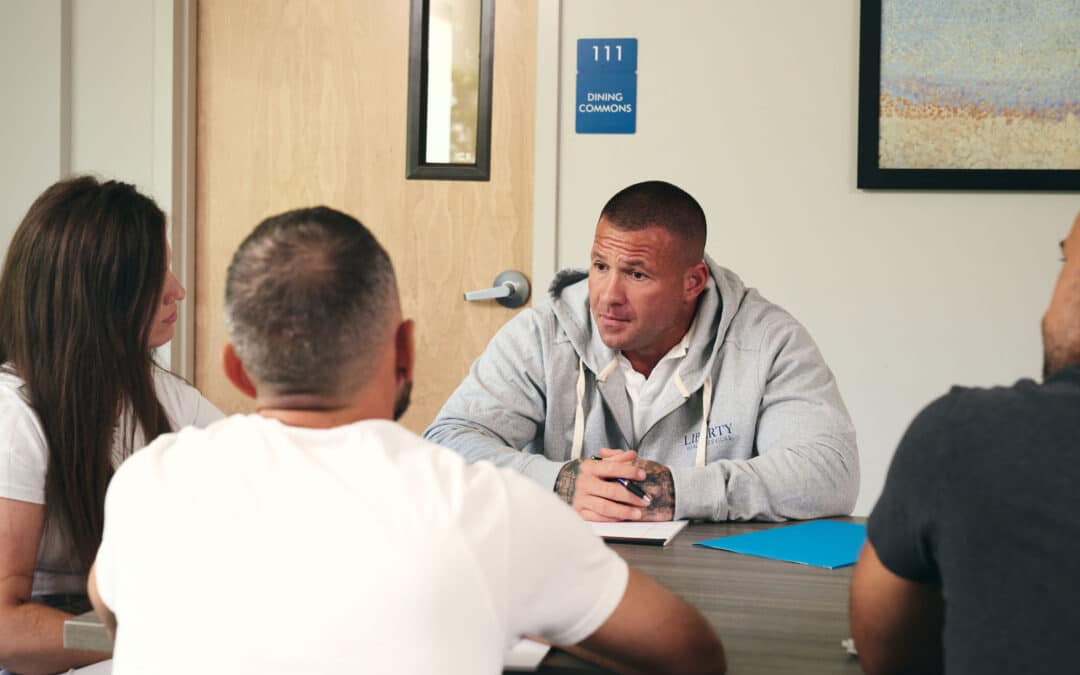All drugs and addictive substances have long- and short-term effects on the brain and body. These effects are based on a person’s body chemistry, life history, general health, and how frequently they use drugs. For many, mental and physical health greatly influence how a substance can affect them. All illicit substances, however, are highly addictive and deadly. Meth is a popular, easy-to-get stimulant that can have detrimental effects on the brain and body, including sudden death.
At Liberty Health Services, our New Hampshire meth addiction center provides clients a restorative detox experience in a boutique family-focused medically-assisted detox program. If you or someone you love is using meth, we can help. Learn more about our comprehensive dual diagnosis treatment today by calling us at 855.959.4521.
Long and Short-Term Effects of Meth Use on the Brain and Body
Methamphetamine is inexpensive and easy to make or get. This makes meth very popular among a wide demographic of people. Contrary to common belief, people from all walks use meth and often maintain a relatively normal lifestyle. Many take meth to increase sexual pleasure, enhance work performance, or as a way of self-soothing for trauma or mental health disorders.
Meth can be smoked, snorted, or injected, causing an immediate dopamine rush. This rush increases heart rate and blood pressure, similar to other stimulant drugs. Other side effects of meth include:
- Sensations of pleasure
- Paranoia
- Hyperactivity
- Insomnia
- Confusion
- Increased alertness
- Manic behavior
- Weight loss
- Loss of appetite
- Feelings of joy
- Heightened physical sensations
The longer someone uses meth, the less dopamine their brain will naturally produce. This means they may need more meth to feel the same stimulant effects. The brain may even stop making dopamine altogether. This can cause:
- Temporary psychosis
- Increased hunger
- Emotional outbursts
- Paranoia
- Self-harm
- Extreme fatigue
The best way to prevent the long-term effects of meth use is to stop using meth as soon as possible. While many people attempt to quit cold turkey at home, it’s hard to stop using it without professional help. Addiction recovery can mitigate withdrawal and meth cravings through detox and various types of therapy.
Is Meth Deadly?
Meth is a highly dangerous and fatal drug. Someone can become addicted to meth the first time they use it. Similarly, someone can overdose and die the first time they use meth. Because meth is made from noxious chemicals like antifreeze, it is highly poisonous. When someone takes meth, their body will sweat out the harmful chemicals, which often causes burns and sores, especially on their face. Because meth is a stimulant drug, it can easily cause cardiac arrest or stroke, leading to death.
Begin Meth Detox Today in Serene New Hampshire
Meth is a leading cause of drug-related death across the United States. Meth-related deaths are avoidable. If you or someone you love is using meth, do not quit cold turkey. Call the team at Liberty Health Services for help. Our intimate clinic houses 24 clients at a time for a boutique, client-focused detox. Our medically-assisted detox programs in serene New Hampshire give clients the tools to disconnect from their stressful lives and jumpstart long-term success. Liberty Health Services provides comprehensive detox for the following:
- Cocaine detox
- Opioid detox
- Opiate detox
- Benzodiazepine detox
- Heroin detox
- Methamphetamine detox
- Synthetic drug detox
- Prescription drug detox
- Valium detox
- Xanax detox
- Alcohol detox
Call us now if you’re ready for individualized detox programs in an intimate setting.
Call Liberty Health Services to Get Started Healing from Meth Addiction
Reach out to Liberty Health Services at 855.959.4521 to learn more about our New Hampshire-based boutique meth detox programs. Enrolling now can be the first positive step toward recovery.


